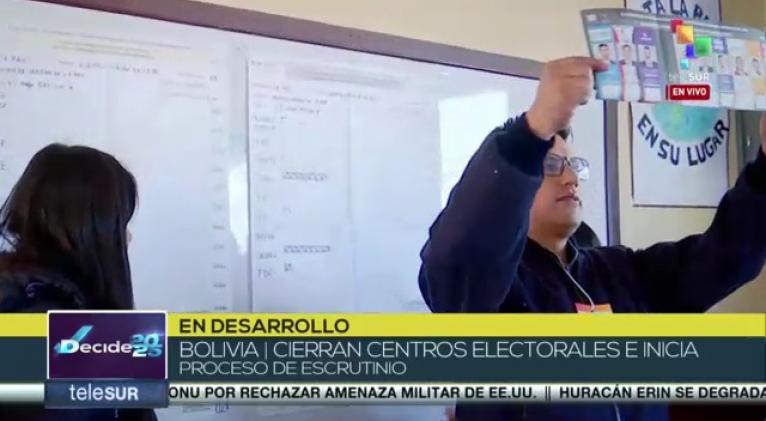
Bolivia, August 18 - Following an electoral day described by the relevant authorities as peaceful, without significant incidents, and with high civic participation across various regions of the country, polling places closed at 4:00 PM local time on Sunday, August 17, according to the established schedule.
From early in the morning, voting centers throughout Bolivia opened under strict security protocols and with the presence of election officials, notaries, representatives of political organizations, and monitors from 19 international agencies. The Supreme Electoral Tribunal (TSE) reported that 100% of polling stations were open, with the exception of one located abroad.
A total of eight candidates are competing for the presidency: two identified as leftist (Andrónico Rodríguez and Eduardo del Castillo), and six from the right and center-right opposition (Samuel Doria Medina, former president Jorge “Tuto” Quiroga, ex-military Manfred Reyes Villa, Rodrigo Paz Pereira, Jhonny Fernández, and Pavel Aracena Vargas).
These are set to be the most monitored elections in the country’s history, with more than 3,500 observers from 19 national and international organizations present.
To win outright and avoid a runoff, candidates need an absolute majority or at least 40 percent of the votes with a 10-point lead over the second-place candidate. Otherwise, a runoff will be held between the top two candidates.
In this election, citizens were tasked with voting for a president and vice president, 36 members of the Senate, and 130 delegates to the Chamber of Deputies, as well as selecting seven indigenous representatives and nine delegates to supranational parliamentary bodies, one from each department.
Bolivians Vote from Abroad
The president of the Supreme Electoral Tribunal (TSE), Óscar Hassenteufel, announced that the electoral process abroad proceeded smoothly, with 100% of the polling stations set up outside the country opening as planned. The only exception was one polling station that was supposed to be established in the United States.
Bolivians living in other countries exercised their right to vote, with residents from Japan, Italy, Colombia, Brazil, and Argentina, among others, participating in this decisive day for the South American nation, demonstrating the significant political weight of expatriates.
Incidents During the Elections
Despite the generally calm atmosphere, a serious violent incident was reported in the department of Cochabamba, where presidential candidate Andrónico Rodríguez of the Alianza Popular party was attacked with stones and shouts by a group of people.
Rodríguez was scheduled to cast his vote in the morning at the Unidad Educativa José Carrasco, but due to earlier incidents, he delayed until after noon. Upon his exit, a group of individuals threw stones at the candidate, creating moments of tension and necessitating increased security for him.
The violence from the attackers was severe enough to result in the hospitalization of the candidate’s campaign manager. Just prior to Andrónico’s arrival and voting, an explosion had been reported outside the polling place in Entre Ríos. (Text and Photo: Cubasí)